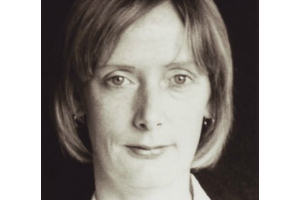Celebrating two decades of hard-hitting social research
25 Nov 2015
Cathie Marsh Institute for Social Research reveals the poor miss out on things money can’t buy as it marks 20th anniversary

People living in poverty are less likely to have the things that money can’t buy like friendship, trust and involvement in the community, according to new research.
And although the country is officially out of recession, the government’s austerity policy – set to be reinforced in this week’s Comprehensive Spending Review – puts civic engagement and social trust within poorer neighbourhoods at risk.
The findings are published in a new book, Hard Times, written by The Guardian journalist Tom Clark and the University’s Professor of Sociology Anthony Heath, who use hard numbers to expose a society defined by division in the wake of the 2008 financial crisis.
The authors spoke at the 20th anniversary celebration of quantitative social research at The University of Manchester on Wednesday – the same day as the government's Spending Review.
Clark explains: “The book gauges the effects of the recession using the Prime Minister’s own metrics: rates of volunteering, a measure of his ’Big Society‘, and general well-being – the GWB he once suggested mattered more than the GDP.
“Poorer parts of the country were more savaged by the recession and it was there, too, that we found that Cameron’s Big Society shrivelled most dramatically.”
Research for Hard Times found that people who lost their jobs during the recession were less engaged in civic activity than contemporaries who kept their jobs during the recession – and they look set to remain more isolated for many years to come.
Clark added: “It is the opposite of what you’d hope and expect, with many of us assuming that communities would pull together when times get tough. But, in fact, people became less trusting of others, less likely to share and more isolated.”
Over the last two decades major quantitative social research has been conducted by The Cathie Marsh Institute for Social Research including work on ethnic segregation, the British Election Study and measuring social inequalities in Britain.
Providing robust data to inform policy makers and focussing on the social inequalities in Britain, it was named after Cathie Marsh, a leading quantitative sociologist in the UK who had begun to obtain international recognition for her ground breaking work on census data when she died aged just 41.
Cathie read oriental studies in part I and social and political sciences in part II at Cambridge then joined the Science Research Council as a research assistant. She returned to Cambridge in 1976, becoming a Fellow of Newnham, a lecturer in sociology and Director of Studies in Social and Political Sciences by the time she left in 1990.
From 1988-9, she was a Simon Fellow in the sociology department here at Manchester, where she held a Nuffield Fellowship in 1989-90. Appointed to a joint lectureship in the departments of sociology and econometrics in 1990, she was awarded a personal chair in Quantitative methods in 1992.
As a leading member of the ESRC Census Working Group on the feasibility of making census data available to researchers, her methodological work on how to produce anonymised records was a contributing factor in OPCS's decision to produce the Samples of Anonymised Records from the 1991 Census. The Census Microdata Unit was founded here in 1993 to disseminate the SARs, with Cathie as its first director. Tragically, she did not live to see the success of her endeavours.
